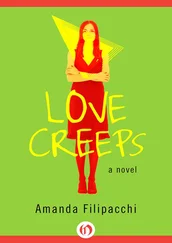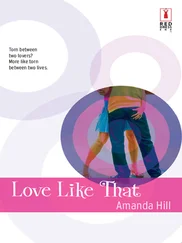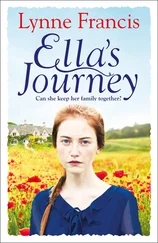L
ove Stories IN THIS TOWN
Amanda Eyre Ward
 Harper Press
Harper Press
For Barbara and Larry, Mom and Peter, Dad and Cassia, Sarah and Chris, Liza and Brad, and my love, Tip
Cover
Title Page L ove Stories IN THIS TOWN Amanda Eyre Ward Harper Press
Dedication For Barbara and Larry, Mom and Peter, Dad and Cassia, Sarah and Chris, Liza and Brad, and my love, Tip
PART ONE PART ONE
Should I Be Scared?
Butte as in Beautiful
The Stars Are Bright in Texas
On Messalonskee Lake
Shakespeare.com
The Way the Sky Changed
PART TWO: LOLA STORIES
Miss Montana’s Wedding Day
Nan and Claude
She Almost Wrote Love
Motherhood and Terrorism
The Blue Flame
Grandpa Fred in Love
Acknowledgments
About the Author
Also by Amanda Eyre Ward
A Reader’s Guide
Copyright
About the Publisher
PART ONE
I first heard about Cipro at the potluck.
“Thank God I’ve got Cipro,” said Zelda. “My doctor prescribed it for a urinary tract infection, and I still have half the pills.”
“Cipro?” I said, my mouth full of artichoke dip.
“Honey,” said Zelda, “where have you been?”
It was a cold, clear night in Austin, Texas. After the disgusting heat of summer, the cool was a balm. Zelda wore a giant sweater, knit loosely from rough, rusty-colored wool. She stood next to the barbecue, holding her hands in front of the hot coals. In the kitchen, my husband and his scientist friends concocted an elaborate marinade.
“Anthrax,” whispered Zelda. She had just begun to date my husband’s thesis advisor, and lent an air of glamour to departmental potlucks.
“Excuse me?” I said. I took a large sip of wine, which had come from a cardboard box.
“Ciprofloxacin,” clarified Zelda, hissing over the syllables. “It’s the anthrax vaccine. A super-antibiotic. If we’re dropped on by, like, a crop duster, Cipro is what you’ll need. And,” she lowered her voice again, “there isn’t enough for everyone.”
Zelda wore scarves and held her wineglass with her hands wrapped around the bowl. When she sipped, her eyes peered over the top, bright coins. She wore high leather boots and worked in a steel building downtown for a company that made expensive software. She had described her job to me: “It’s an output management solution, and I market it. It connects the world.” We had no idea why Zelda wanted to spend her evenings, which could obviously be spent in snazzier locales, with us. We wore Birkenstocks.
I was a scientist’s wife. This title pleased me. I also worked at Ceramic City, where people could paint their own pottery. My title at Ceramic City was “color consultant.” This title did not please me. I was trying to figure out what to do with my Bachelor of Arts degree in Anthropology, with a focus on the egalitarian foragers of the Kalahari Desert.
“Oh,” I said to Zelda, regarding the Cipro. It was times like this that I felt lucky to have a scientist for a husband. I could ask him later for details, and he would not laugh at me. He explained things patiently, drawing circles and arrows on the margins of the newspaper.
“Hey, ladies!” said a dark figure, emerging from the kitchen. It was my husband’s thesis advisor. “Is that fire ready for some birds?”
Zelda smiled charmingly. The light from the coals made her look a little scary when she turned to me.
“Get some for yourself,” she said in a quiet voice. “I’m serious,” she said, and then she turned her face up to meet her lover’s lips.
My husband explained in the dark of our bedroom that ingesting expensive antibiotics for no reason was a bad course of action. We had pulled the covers over our heads and invited the cat into the warm cave. My husband called the cat “spelunker,” saying, “What do you think, little spelunker? Do you think we should let the terrorists make us afraid? Do you think we should buy canned goods and a six-day supply of water?” (The last was in reference to my actions of the previous day, when I had arrived home with twenty-eight cans of Progresso soup and three gallons of water.)
This was the beginning of the War on Terrorism.
Two weeks before, we had discussed what to eat for dinner and if we were drinking too much beer. We had talked about having a baby, mowing the lawn, and what sort of dog we should adopt. (My husband was partial to standard poodles, and I liked little dogs that could sit in your lap or in your purse. If you carried a purse.)
In those days—which seemed impossibly bright now, untarnished—we had talked idly about what sort of fishing rod my husband should buy with his jar of quarters. My husband came home each night, took the change from his pants pocket, and dropped it into a large water jug; he claimed he had done this since he was six years old, and the first time the jug filled (right before I met him), he bought a canoe. The canoe! He loved it ferociously. He named the canoe after me, wrote my name in Wite-Out on the side. One night, when I was reading and he was asleep, he spoke. “You’re the best,” he said, his arms around my waist, squeezing. I checked: he was in dreamland, speaking from that place. “You’re the best,” he repeated. “You’re the best, best, best canoe in the world.”
In the end, we had decided that we wanted a baby more than a dog or a fishing rod, and we had thrown away my birth control pills and made love slowly, with the moon shining a soft light over us.
Things had changed so quickly and forcefully that it seemed to me my husband hadn’t quite accepted the fact that we were in danger. I lay in bed in the mornings now, hearing helicopters and listening to the news.
“Your dad is making fun of me,” I told the cat under the covers. I began to cry a little, and my husband said he was sorry.
The next morning, from behind the counter at Ceramic City, I called Dr. Fern. The first time the nurse answered, I hung up. I was alone in Ceramic City, but I did not know what to say to the nurse. Was I being crazy? I wanted to think so. My mother, who lived in Connecticut and had gone to three funerals for her friends’ sons, told me that it was unpatriotic to want some Cipro for myself. When I told her I was afraid to get out of bed, she said, “That’s just how the terrorists want you to feel.”
I called Dr. Fern again. This time, when the nurse answered, I said that I would like to make an appointment.
“Issue?” said the nurse.
“Excuse me?” I said. A man peeked into the window of Ceramic City. I thought, Fuck.
“What is the issue,” said the nurse, “that you need to see the doctor about?”
“Uh, I’d like to get a prescription,” I said.
“For?”
“For ciprofloxacin,” I said. The peeking man came inside and began to wander around, inspecting Personalized Pottery.
“Beg pardon?” said the nurse. Was she instructed not to use full sentences?
“In case of an anthrax attack on America,” I said, “I would like to have my own supply of antibiotics.” The man was holding a blue bowl painted with fish. He stared at me.
“Oh my,” said the nurse.
“Well, so,” I said. I put my hand over the mouthpiece. “Can I be of assistance?” I asked the man.
“My wife’s birthday is Tuesday,” he said.
“One moment, please,” I said. The nurse told me that she would have to consult with the doctor and get back to me. She took my number. When I hung up the phone, I saw that the man had put the bowl back on the shelf.
Читать дальше

 Harper Press
Harper Press










